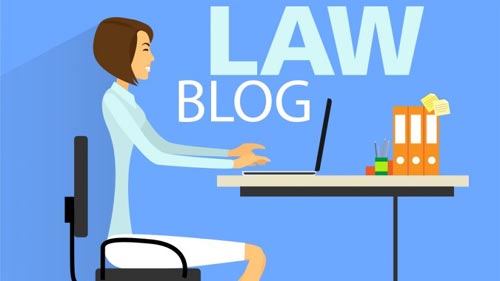 Most people who have started blogging started with just wanting to share a snippet of their lives with others. Some wanted to share their thoughts and great finds and some wanted to promote themselves or their business. The farthest thing that a blogger expects is to be served a lawsuit. Unfortunately, bloggers who get sued find out that their small mistakes can lead to a legal battle. If you’re thinking of starting a blog or has been blogging for a while, it is best to familiarize yourself with the important legal tips below.
Most people who have started blogging started with just wanting to share a snippet of their lives with others. Some wanted to share their thoughts and great finds and some wanted to promote themselves or their business. The farthest thing that a blogger expects is to be served a lawsuit. Unfortunately, bloggers who get sued find out that their small mistakes can lead to a legal battle. If you’re thinking of starting a blog or has been blogging for a while, it is best to familiarize yourself with the important legal tips below.
Acquaint Yourself with Copyright Law
For best blogging practices, you need to be sure that you are not publishing something that is owned by someone else that is not marked for reuse. Reposting a beautiful photo can lead to a lawsuit. You have to be careful because some people deliberately post their photos everywhere to make it look like the photos are for public use and then sue you. The same goes for written content. Publishing something that looks similar to existing content can result in a lawsuit and copywrite issue.
Make Sure to Pay Taxes and Monetize Legally
When you start to get traction online, chances are you will start making money from your blog via sponsorships, ads, affiliate links, AdSense, and more. Blog income is still income. If you are making any money from your blog, this must be reported to the proper agency and taxes must be filed. If you are part of affiliate networks or advertising networks, you will have to pay taxes from any income from those as well. For sponsored reviews, it is essential that this information is shared with your readers or subscribers.
Read Up on Libel and Defamation
Blogging is about sharing your personal opinion; however, negative statements about something or someone without proof can lead to a libel suit or a defamation suit. If you bought something to review it, then it did not work as intended, and you posted a negative review as an emotional response, you can still get sued.
It is important to try to be less emotional when writing and stick to information that can be proven and best if photos and videos can be shared as well. Know that posting a review with proof does not make you immune to a lawsuit but evidence of negative claims can be used for your defence if things go to court.
Exercise Utmost Privacy for Personal Information
Some blogs allow readers to subscribe and collect their personal information. If you do this, you must have a privacy policy for collecting any private information like an email address. Data collected this way must be protected by using up-to-date security measures.
Share Information Responsibly
Writing or sharing false information can get you in trouble even when you were not the primary source of false information. Verifying your sources is important as well as citing sources when needed.
Make Use of Disclaimers
DISCLAIMER: Note that the above tips are not to be mistaken as legal advice. They were written for information purposes only. If you’ve posted something that can lead to serious medical, legal, or financial issues with your readers, it is important to put up a disclaimer. If you are not sure when to add a disclaimer, write one anyway to avoid legal liability.
About the Author:
Calvin Barry is a Toronto DUI Lawyer with over sixteen years as a Senior Crown Attorney, has appeared as a Criminal Prosecutor at all levels of Trial Court, and has prosecuted many high-profile cases including more than sixty jury trials.




